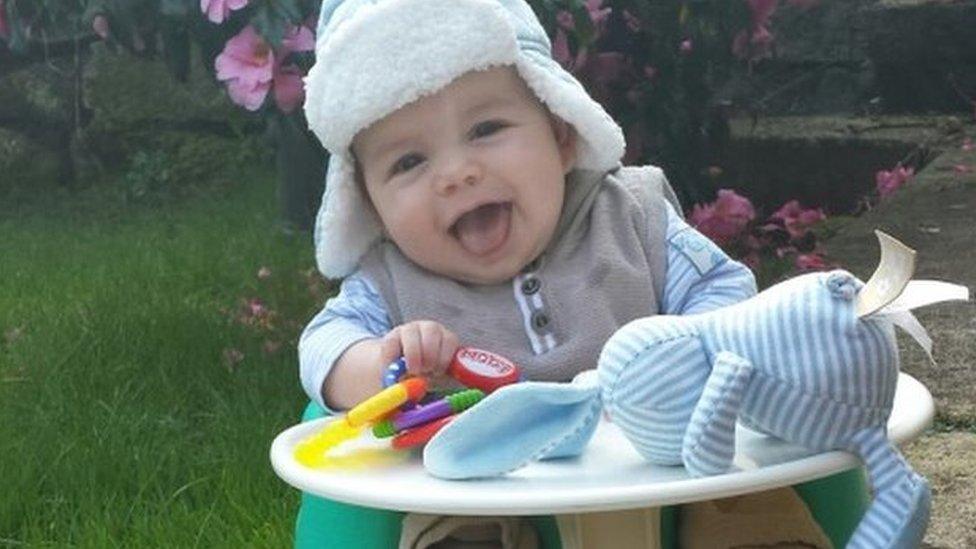Derek Brockway: Understanding why my dad died
- Published
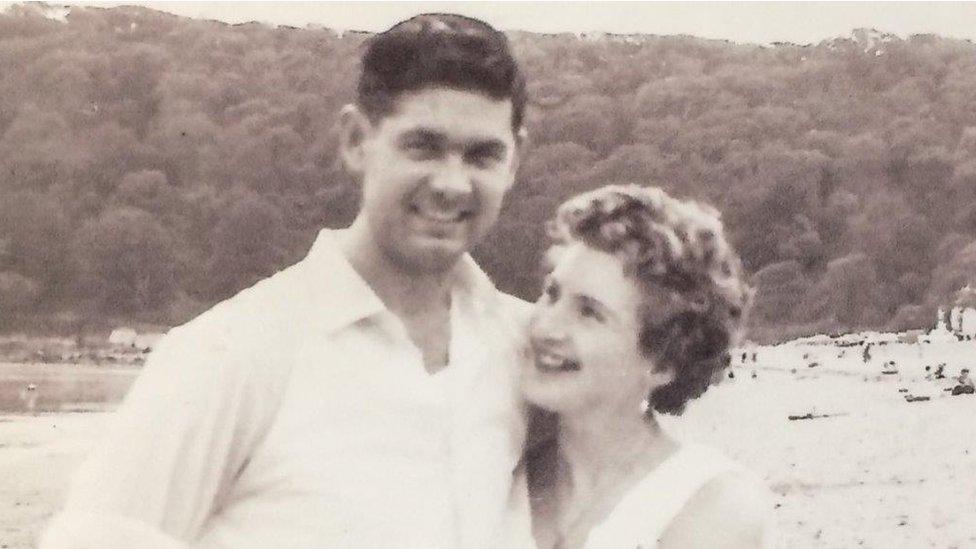
My parents Cliff and Joan Brockway who fell in love as teenagers and married in 1954 raising me, my brother and sister in "Barrybados" aka Barry, Vale of Glamorgan
Before February 2015, I'd never heard of the word "sepsis".
When the doctors told us my dad had the condition, I had no idea what it was and I had to Google it.
I learned that it is blood poisoning, a response to infection when the body attacks its own organs and tissues.
Just a few weeks later, I learned even more. That it would be the death of my father.
In addition to my day job forecasting the weather for Wales Today, for the past few weeks I've been working with BBC Wales' Week In Week Out programme to take a more in-depth look at sepsis - at both the devastation it can wreak on all our lives and whether our hospitals are geared up to spot it and tackle it in time.
What I have discovered has shocked me.
Sepsis kills 44,000 people every year in the UK - that's more than breast, bowel and prostate cancer put together - enough people to fill a big football stadium.
Understanding why dad died
What's so frightening is that sepsis is a "silent killer" which can strike at lightning speed. It doesn't matter how young or fit you may be - you or I could fall victim.
My dad, Cliff, was 82 and had a few health problems including vascular dementia. He needed to be in a care home towards the end of his life and he had been suffering from various infections in the months leading up to his death.
It was Christmas 2014 during lunch at my sister Kathryn's house - weeks before he developed sepsis - that I looked over at him and was struck by his frailty. I felt an immense sadness, thinking to myself this could be my last Christmas with him.
My dad was a great family man. He used to drive a petrol tanker for Esso and I remember him pulling up at the bottom of our street in Barry and I'd climb into the cab and sit beside him as he made his deliveries all over south Wales, singing along to his favourite songs by Johnny Cash and Kenny Rogers.
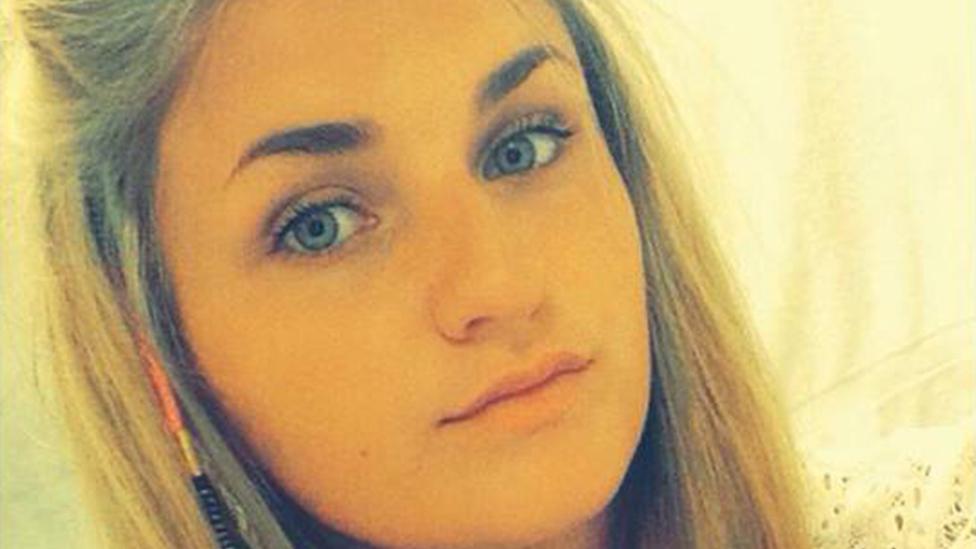
Chloe Christopher, 17, died in her mother's arms at home during Christmas 2014
He loved his boxing and football and he would take me and my brother to Ninian Park to watch Cardiff City play.
As I got older, he supported my dream of becoming a meteorologist - an ambition sparked by the heat wave of 1976 when my fascination with the weather began.
My dad bought me my first thermometer, took me to visit the Cardiff weather centre and, years later, drove me to my job interview at the Met Office in Bracknell.
He was so proud of what I'd achieved and towards the end of his life when he was in a care home, my mother would show him episodes of my TV show Weatherman Walking and each time she said he'd fill-up at the mention of my name.
I miss my dad and of course I wish he was still around but I can console myself that he lived to a good age despite poor health in later years and that he also led a good life with a loving wife and children around him.
Understanding why dad died
The experience of some of the people I met during the making of the documentary is heart-breaking.
Michelle Christopher's beautiful 17-year-old daughter Chloe died just a few weeks before my dad.
"Just before Christmas she presented with cold and flu symptoms, nothing to write home about," Michelle told me.
The night Chloe died, 30 December 2014, she was at home with a friend while her mother was looking after her nan who lived down the road.
When Michelle returned home later that evening, she found Chloe collapsed on the upstairs landing.
"Mam, I'm frightened, I don't feel well," Chloe told her.
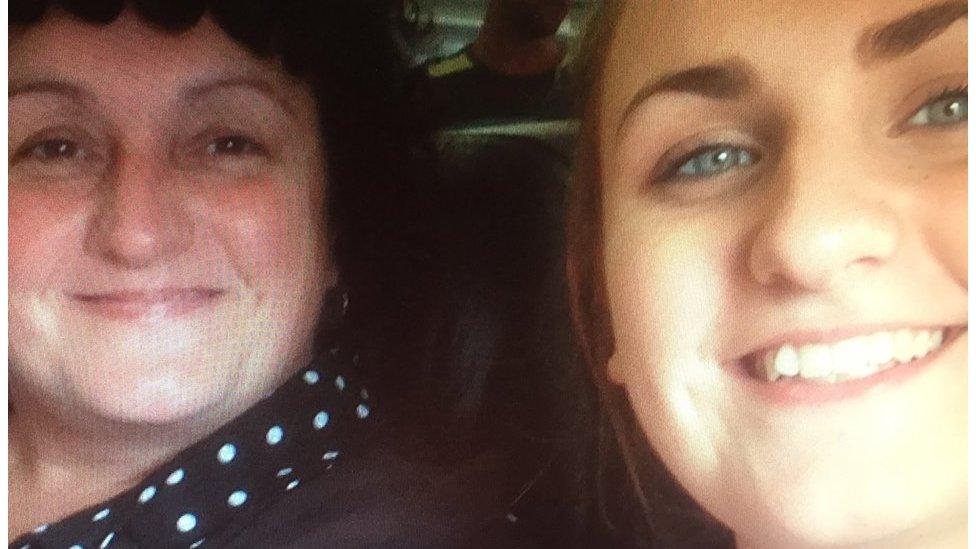
Michelle, pictured with Chloe not long before she died, is working with the UK Sepsis Trust to raise awareness
Michelle dialled 999.
She was answering the call operator's questions when Chloe went into cardiac arrest.
"Chloe's colour drained… I had to lie her down and try to do CPR on her and then she just went before us," she says.
"To try to do CPR on your own daughter is unreal."
The inquest into her death heard that Chloe had been suffering from an e-coli urine infection which led to multi-organ failure and cardiac arrest. Sepsis was the cause of her death.
Michelle is haunted by "what ifs" but told me there were simply no signs of what was to come.
One minute her daughter had been excitedly planning a New Year's fancy dress party, the next she was dead in her arms.
Her death was shockingly quick.

Chloe's mum Michelle told me her daughter had been planning a fancy dress costume for a New Year's party just hours before her death
And it is this crucial factor that Michelle is determined to raise awareness of - it is vital sepsis is caught very early, within an hour of being suspected.
If antibiotics and intravenous fluids are administered quickly enough, the chances of survival are good.
There are days when all Michelle wants to do is draw the curtains and shut out the world, but she has put her own intense grief aside to campaign alongside the UK Sepsis Trust charity to try to save thousands of lives.
"We just need to get the word out there to anybody," she says. "If only we'd known maybe Chloe would still be here now."
For the programme, I went back to the University Hospital of Wales in Cardiff where my dad died. Staff there did their best for my dad but unfortunately he was too ill to beat sepsis.
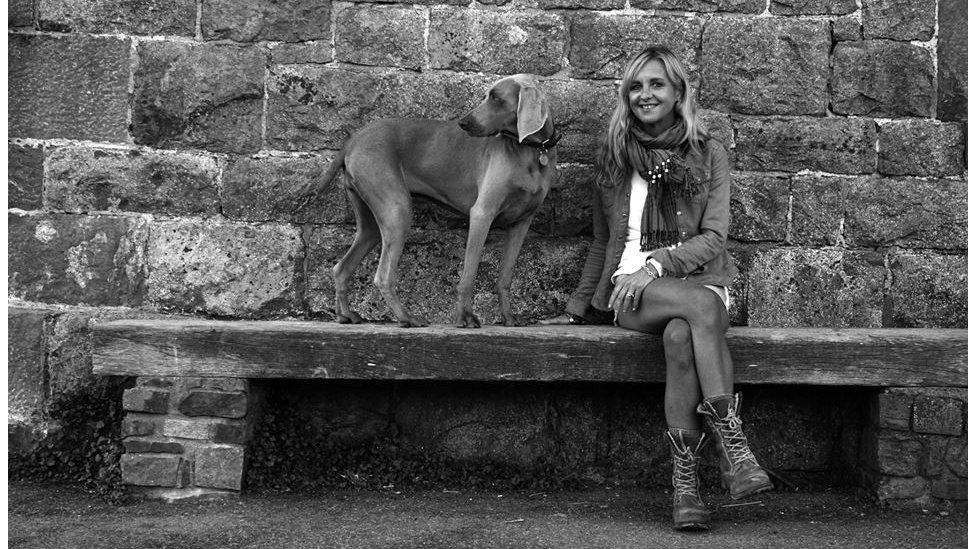
Jayne Carpenter with Harriet before she contracted sepsis in May this year
I talked to medics about sepsis and what they are doing to save lives.
According to research by Cardiff University, treatment for sepsis can vary from hospital to hospital.
I asked Wales' Health Secretary Vaughan Gething if he thought we needed to adopt a more coordinated, consistent approach if we are to tackle sepsis more efficiently. It is something he assured me he is taking advice on.
Jayne Carpenter, 49, a nurse from Merthyr Tydfil, developed sepsis and was given treatment early enough to save her. Even so, her life would never be the same again.
Jayne Carpenter went to see her GP about a cough
In May this year Jayne felt ill; a cough, she thought, at worst a chest infection.
When she began to feel worse she went to the out-of-hours service at Prince Charles Hospital in Merthyr.
"I went to GP out-of-hours and then I woke up two-and-a-half months later having nearly lost my life," she says, "but I did lose my legs, my left arm and the fingers on my right hand."
Unbeknown to Jayne, she had contracted pneumonia and was developing sepsis.
Surgeons were left with no choice but to amputate her limbs to stop the spread of the lethal infection.
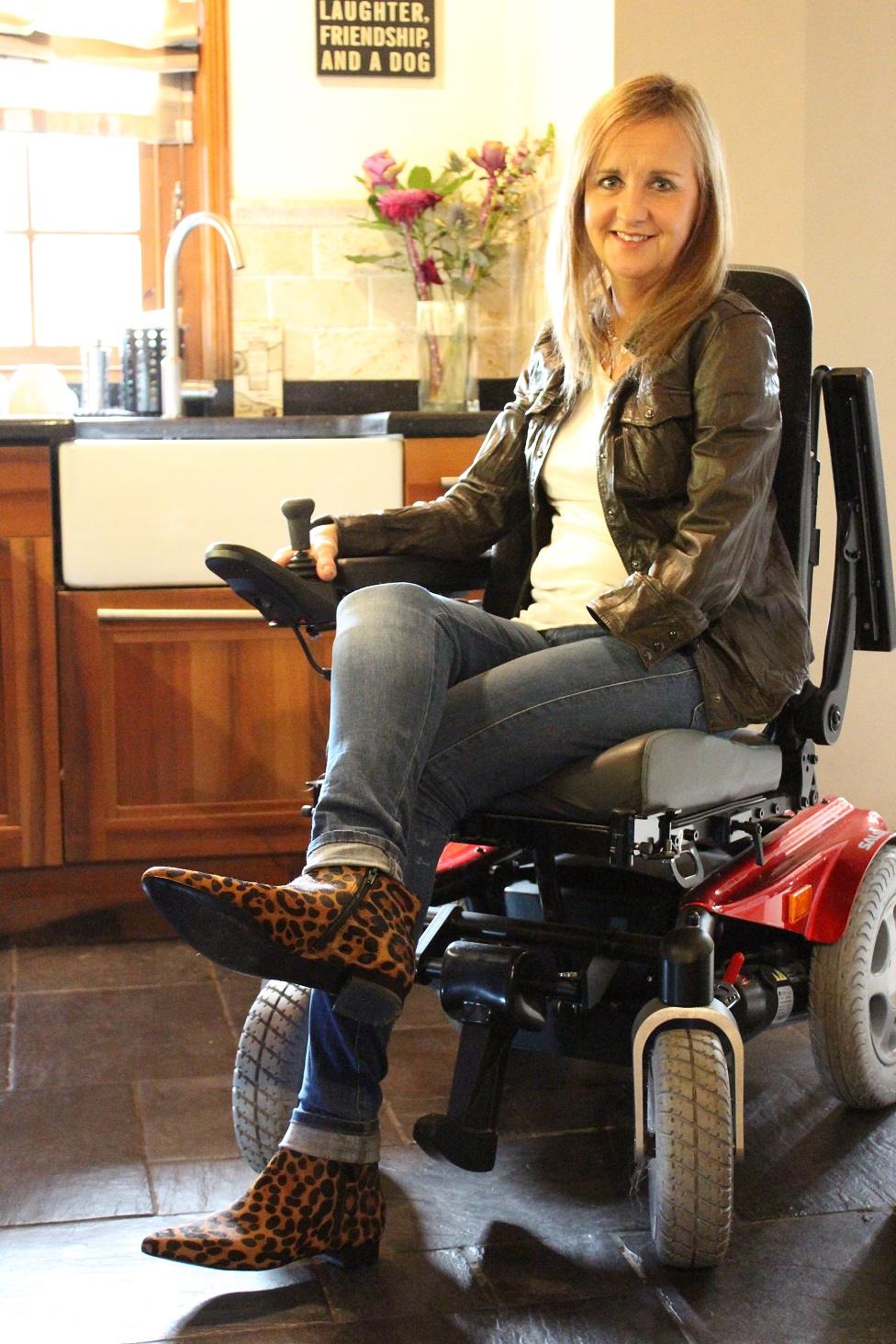
Determined to go back to work and walk her dog on the beach, Jayne is adapting to life after sepsis
"To be perfectly honest, I had no real recollection of a definitive moment that I realised I didn't have any limbs," she says.
"One of the nurses said I kept repeatedly saying 'where's my hand?'.
"When I was told how ill I'd been, that sort of came second best, you know, it didn't seem as important as I could have died."
Jayne's inspiring, positive outlook has helped her to make huge progress.
She has undergone intensive physiotherapy at Cardiff's Rookwood Hospital and is determinedly re-building her life and learning to cope with the help of husband Rob and her beloved Weimaraner dog Harriet.
Her life-long passion for shoes continues as she adapts to prosthetics and she has learned how to apply her make up herself once again, no longer having to ask Rob to do it for her.
She is determined to go back to work and do all the things she used to.
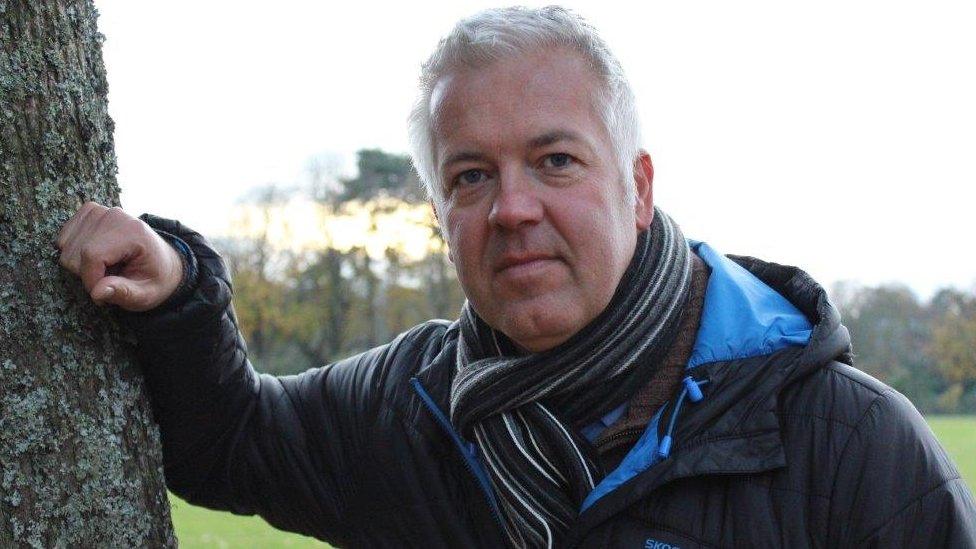
So many people are suffering as a result of sepsis so raising awareness is vital so people can get it treated quickly and lives can be saved
"I see myself in the future back to walking my dog on the beach," she says.
"I want to get back to work because I want my life back. It was nearly taken away from me so suddenly. I want me back."
What happened to Jayne and Chloe and their families - the destruction and pain it causes to so many - illustrates how vitally important it is that people know about sepsis and what it can do.
It took my dad and it's taken countless other fathers, mothers, brothers, daughters, even babies.
I loved my dad very much and nothing is going to bring him back. It is the same for Chloe Christopher's mum.
But if by raising awareness of our experiences, Michelle and I can help prevent even one unnecessary death, it would be a fitting tribute to two people who meant the world to us both; who are missed even more painfully at this time of year, Christmas, around the anniversaries of their deaths.
Derek Brockway: Understanding Why My Dad Died is broadcast on BBC One Wales at 20:30 GMT on Monday, 28 November
- Published26 January 2016

- Published13 July 2016
